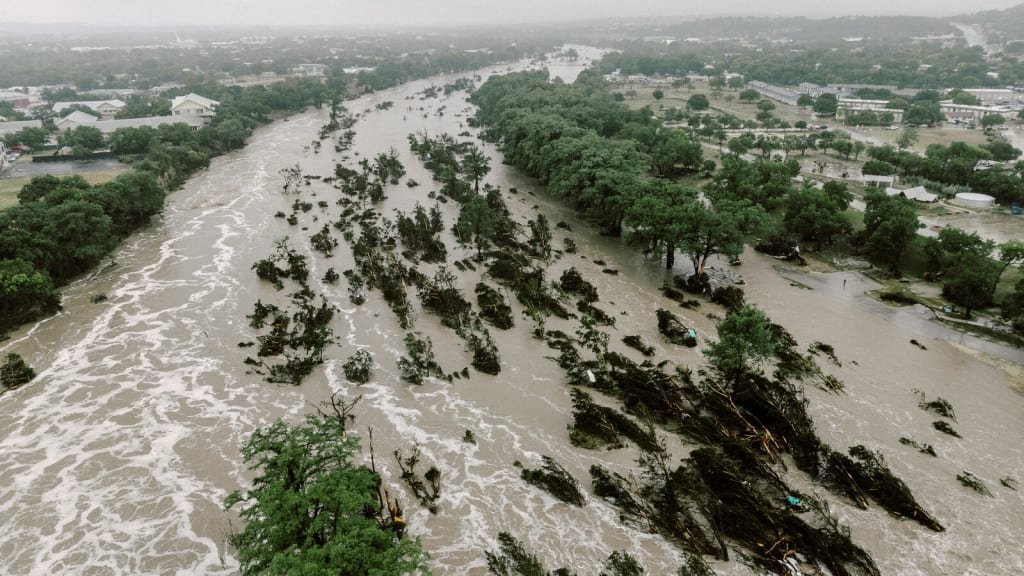
The Silence Before the Storm: How Budget Cuts and Denial Are Killing Americans
The death toll from the flooding in Kerr county has risen to 43, including 15 children, the sheriff Larry Leitha said at a briefing. As of 5.30pm on July 5th, he added, officials were still working to identify 12 of the recovered adults and five of the children.
Dalton Rice, the Kerrville city manager, said that 27 girls from Camp Mystic, a Christian summer camp along the Guadalupe River, are still missing. Other people who were in the area but not at the camp could also be missing, Rice added.

Fire and the Emergent Worship of Artificial Intelligence.
I believe this is more than a policy debate. It is a spiritual conflict about the role of humanity in nature. One side envisions a world sanitized of risk and irregularity — a world governed by remote sensing, machine learning, and automated suppression. The other side honors fire as a regenerative life force. As an ecological fire practitioner and educator, I know which side I stand on.

Locked Jet Streams, Fire Tornadoes, and the Politics of Wildfire
“An increase in resonant planetary wave events, which favor persistent summer weather extremes, is evident since the mid-twentieth century, with an increase from roughly 1 to 3 events per summer on average.”

Whither the Incident Management Teams
These aren’t just administrative losses. They are operational amputations. The DOGE cuts have gutted the experienced core of IMTs—particularly in critical roles like operations, logistics, planning, air attack, and finance. Some teams are now scrambling to replace long-standing members with temporary fill-ins, often from state and local agencies already overcommitted.

Hollowed Out
In the wake of the Department of Government Efficiency (DOGE) initiatives, led by Elon Musk, significant staffing reductions have occurred across federal agencies responsible for wildfire management. Chaotic firings of probationary employees, and others, followed quickly by re-hirings, were experienced in all the Federal land management agencies. This, all the while official government inboxes filled with official Reduction in Force (RIF) messages alongside weird loyalty pledges and whimsical demands of a ketamine addict. These cuts have strained resources and fueled uncertainty over job security, raising concerns about the readiness and effectiveness of wildfire response teams.

Colorado Condensate
Incendiary Imbeciles #4
Lots of wildland fire workers enjoy being a part of the virtuous fire cycle and pridefully protect human structures. But many times unknown circumstances compromise their safety.
From the air, we got a good look of the millions of years old interplay of wildland fires’ creative destruction and promise of rebirth, renewal and vibrant growth on this landscape of piñon, juniper, and sagebrush. We also saw the encroaching fossil fuel infrastructure that sprawled as gigantic spider webs of pipelines binding derelict carcasses of rusting storage tanks and decaying pump jacks.

L.A. Burning: 2024 Wildfire/Climate in Review
Sunset Boulevard lies in ruins in Pacific Palisades where hydrants ran dry, millions are without power, and authorities say the worst is still to come. Some inhabitants are surrounded by large fires, and over a hundred thousand residents are under evacuation orders. There are at least 1,100 structures lost with tens of thousands more in harms way.

Run to the Water. Run for Your Life…Updated 8/23
If you’ve ever visited the beautiful Lahaina town on the west coast of Maui you cannot help but feel a huge loss, not only for the lives lost, a number that is likely to increase, but for the loss of Hawaiian history.

Chief Moore's New Direction on Prescribed Fire
In his 2023 Letter of Direction to USDA wildland firefighters, Chief Randy Moore made a significant change in tone and language when it comes to the use of prescribed fire.

Big Iron & Big Profit
As is in vogue today, business experts are allowed to pose as experts in any and all things. I caught this review of the new book, Running Out of Time: Wildfires and Our Imperiled Forests in Wildfire Today.

Jetstream
“While most of the United States is coming out of a wet winter, large fires are ravaging Alberta and British Columbia just north of Montana. Ninety large fires have burned a million acres in 2023, burning 150 times more area than fires in the last five years combined. While May is typical fire season in western Canada, fires are going to new extremes this year, burning

In Oregon’s 2020 fires, highly managed forests burned the most
This record-breaking fire season has re-ignited discussions about causes of severe fires. One long-standing narrative is that fire suppression has resulted in ‘overgrown’ forests that fuel larger and more intense fires than occur under more intense management (the “fuels narrative”). This narrative, promoted by timber interests and the president, among others, is irrelevant within the context of Oregon's major western Cascades fires.
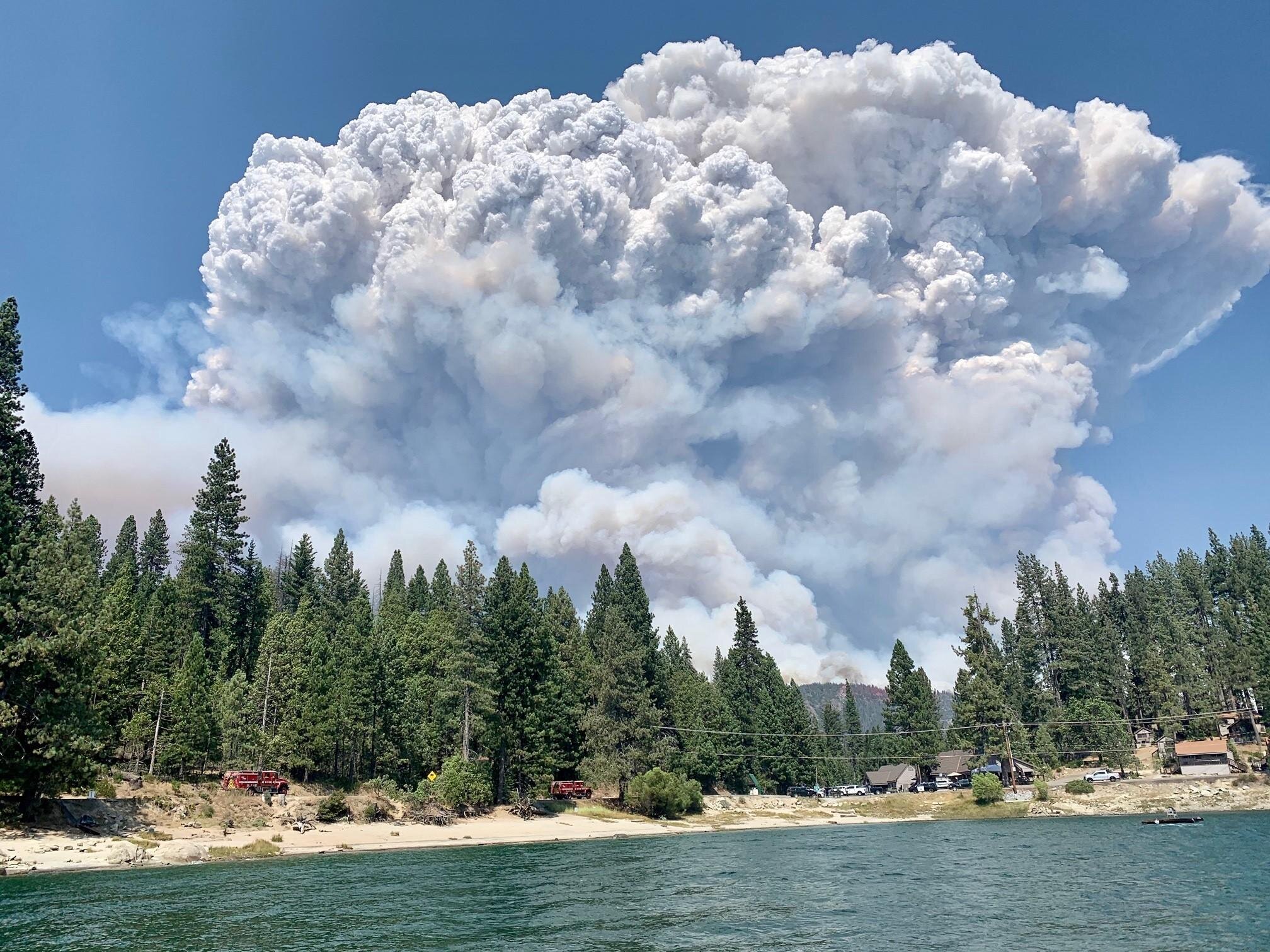
America’s Black Tuesday
“This could be the greatest loss of life and structures… in state history.”
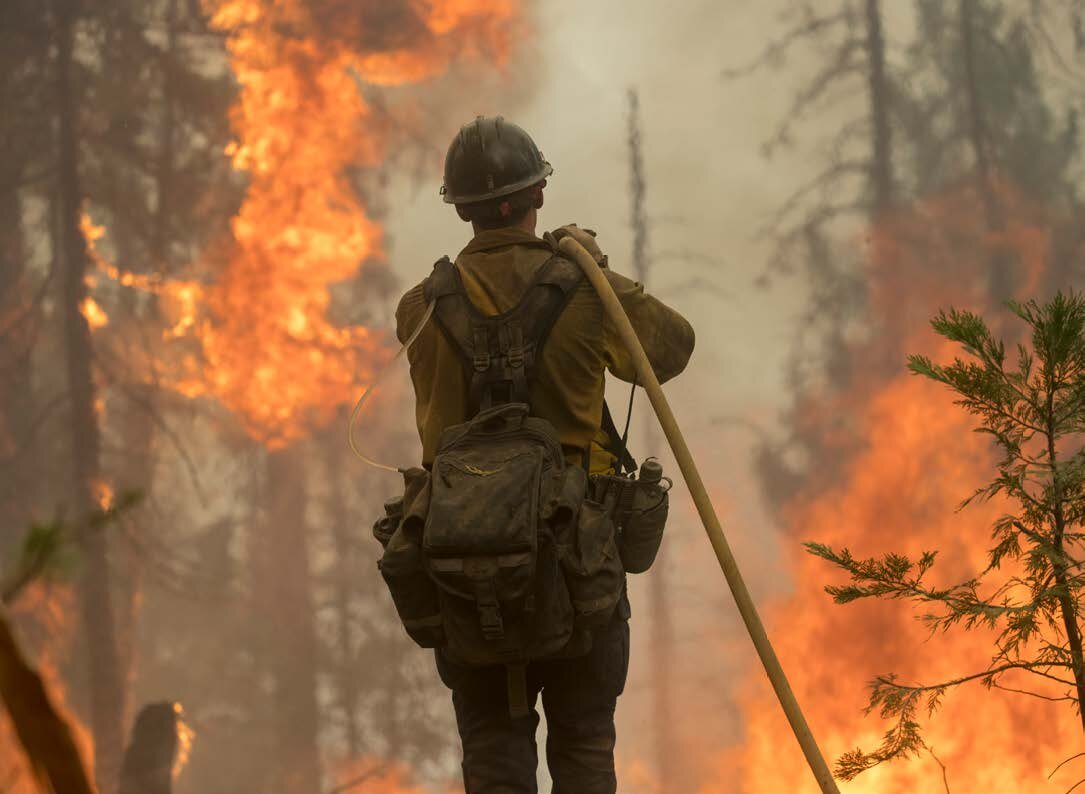
Incendiary Rhetoric: Climate Change, Wildfire, and Ecological Fire Management
Incendiary Rhetoric: Climate Change,Wildfire, and Ecological Fire Management is a guide intended to help forest and climate activists talk to broad audiences about wildfire in the era of climate change, in ways that are grounded in the best available fire and climate science and progressive fire management policy.
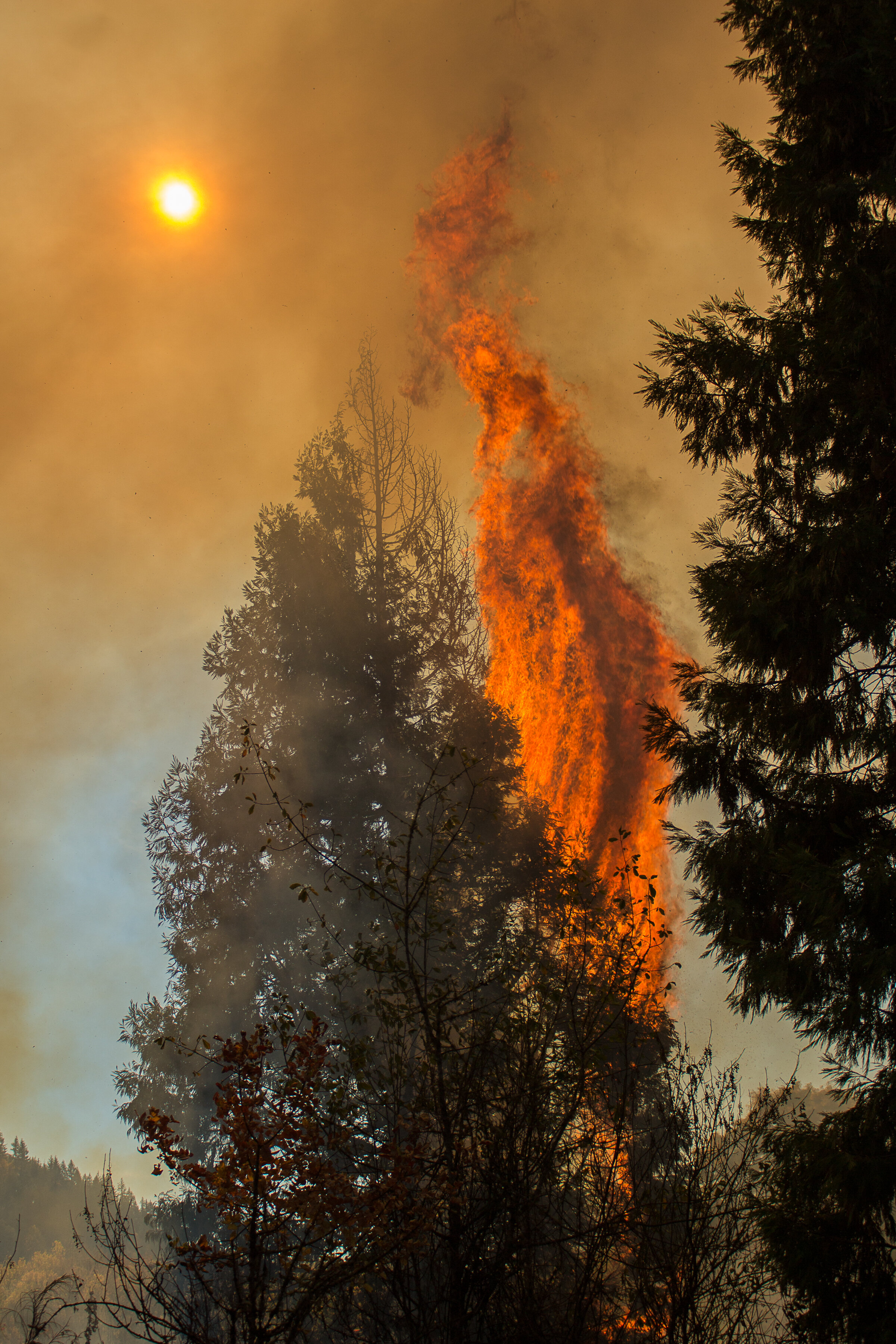
PYROGANDA: Creating New Terms and Identities for Promoting Fire Use in Ecological Fire Management
Agencies, organizations, and institutions in the wildland fire community will have to engage in an explicit pro-fire “pyroganda” campaign to help counter its historic anti-fire propaganda and inspire necessary changes in consciousness and behavior in the public and fire management workforce. As part and parcel of this effort, FUSEE proposes renaming wildland firefighters as fire rangers.

Run to the Water
Christmas turkey in Australia this year was served smoked, if not charred. In the final days of 2019 the increasingly familiar eerie visions of a day sky turned to night with embers flying in all directions were dished up on the people of New South Wales and Victoria, Australia. Sirens sounded out and residents were told to flee to the water…to the beaches. Many huddled together in small groups out in the sand, others staged a Dunkirk-style apocalyptic retreat under red skies onto the water in boats.

10 Ways that the Climate Crisis, Wildfires and Militarism are Intertwined
The war on wildland fire is simply an extension of our country’s extreme militarism – a place where veterans of foreign wars, wanna-be cops, and other conservative-minded men, mostly, can assemble, bond, and wrap themselves in a narrative of strength, heroism and sacrifice. There is a place for men and women to suppress fires near homes and vulnerable infrastructure. However, claiming glorious victory when fires are easiest to suppress, go out on their own, or when a break in the weather moderates conditions is disingenuous.

Spotlight: FUSEE Board Members
Firefighters United for Safety, Ethics, and Ecology would like to welcome its two newest Board Members, Bill Tripp and Taro Pusina.
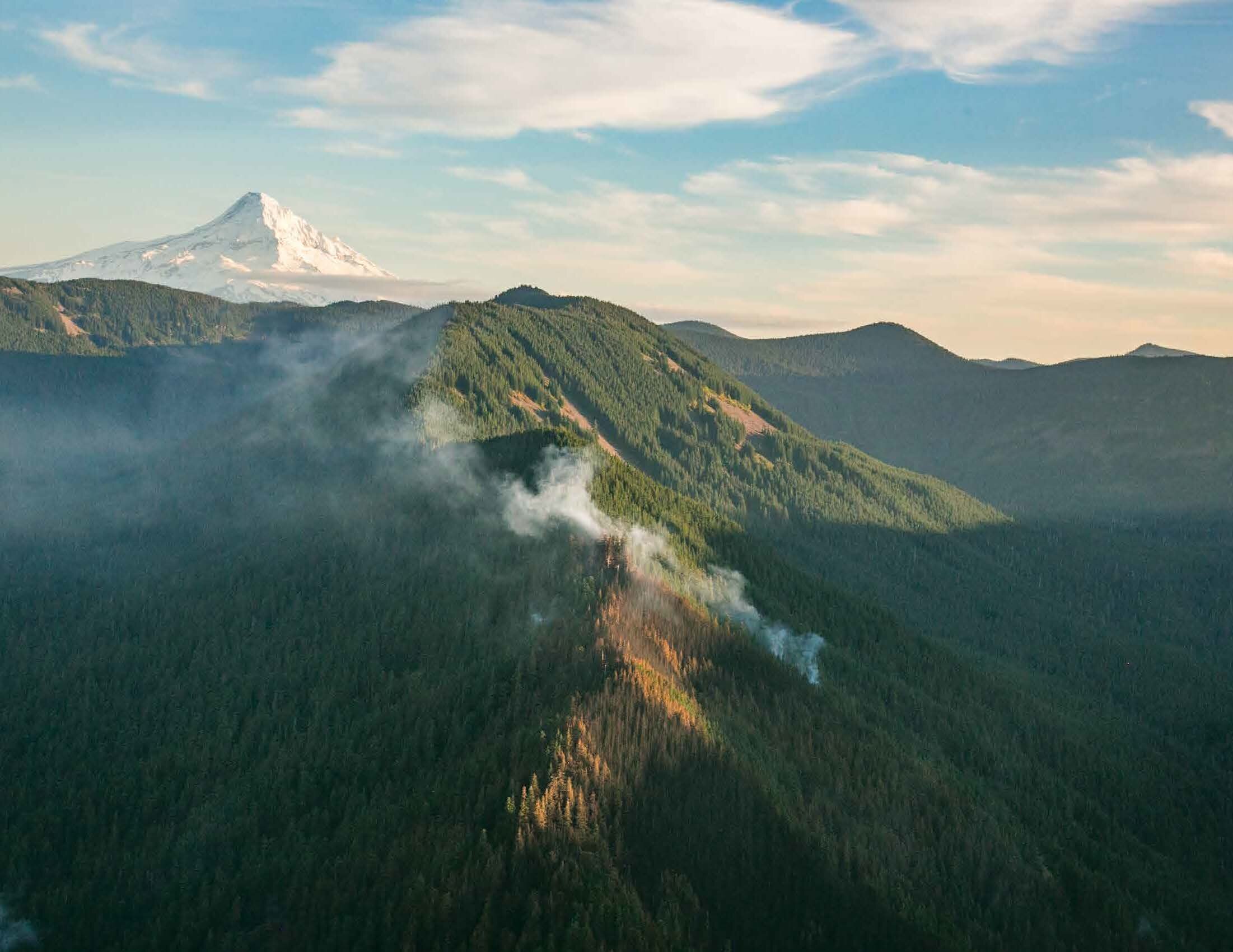
Forests, Wildfire and Climate Change
Wild re has been an integral part of western forests for thousands of years, but in recent decades con icts between people and re have increased dramatically. Climate change is bringing hotter, drier conditions to western forests, which is increasing re activity, and scientists predict that this trend will continue as the planet heats up. This guide is intended to help climate and forest activists understand the unique dynamics between forests, wild re, and climate so we can collectively chart a new path towards community resilience to the impacts of climate change. By modernizing our wild re policies, we can protect homes and communities while restoring the important role that re plays in the forest ecosystems of the American West.
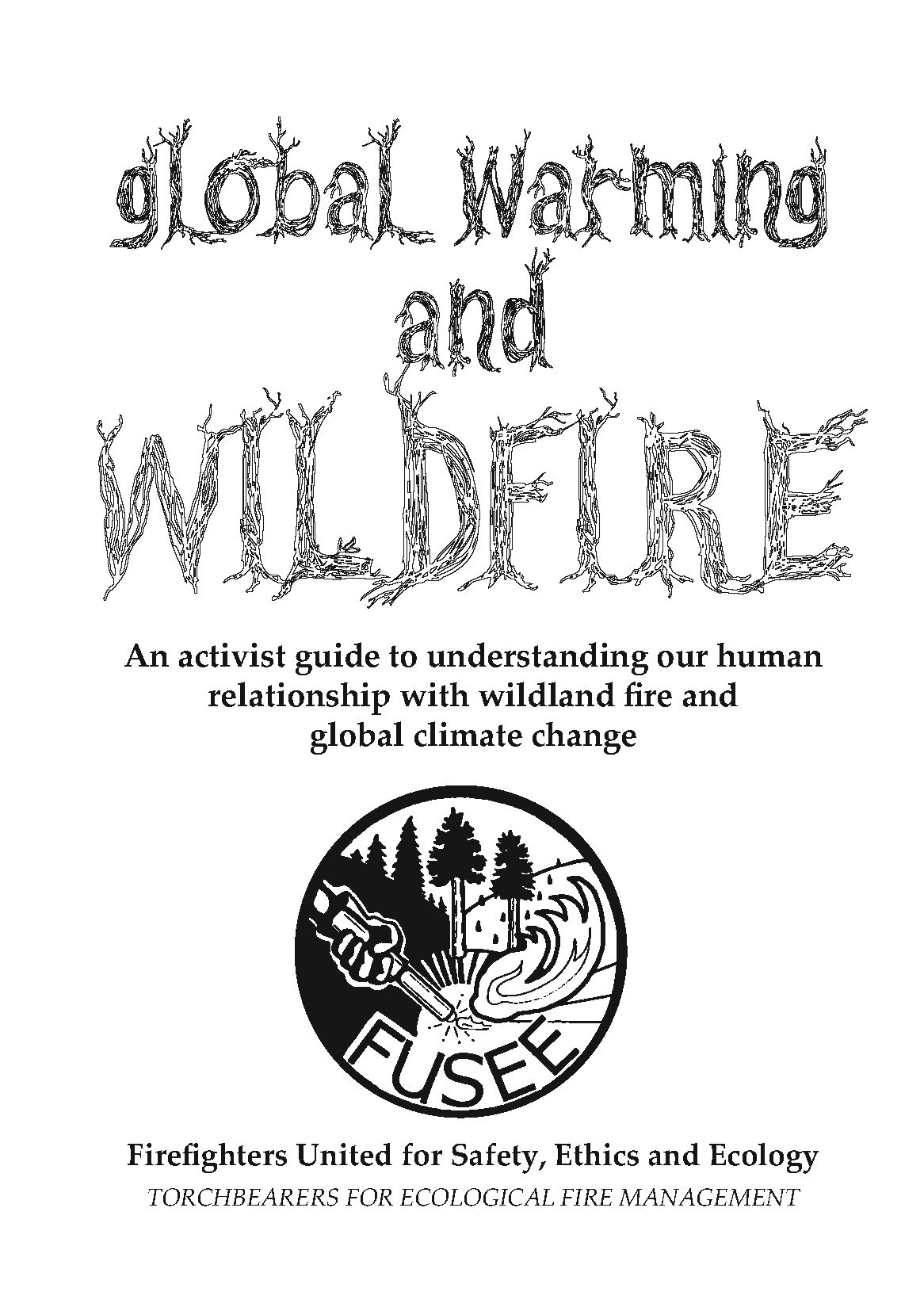
Global Warming and Wildfire: Don’t Panic!
An activist guide to understanding our human relationship with wildland fire and global climate change.
